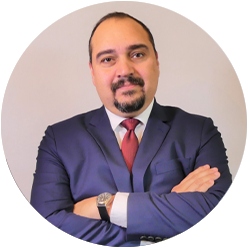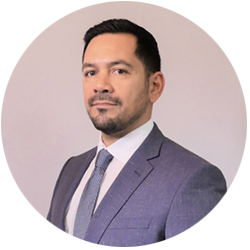A motorcycle accident can be a life-altering event that leaves you feeling overwhelmed, injured, and unsure of what steps to take next. If you have been involved in a motorcycle accident in Florida, knowing what to do immediately following the accident and in the days and weeks ahead can significantly impact your health, your rights, and your ability to seek compensation. Navigating the complexities of Florida’s legal system can be challenging, especially when you are dealing with injuries and emotional trauma. This guide provides you with answers to some of the most common questions people have after a motorcycle accident, helping you to better understand what you need to do to protect yourself and your future.
Immediate Steps to Take After a Motorcycle Accident in Florida
Being involved in a motorcycle accident can leave you in shock, disoriented, and confused about what to do next. However, taking the right actions immediately after the accident is critical to ensuring your safety and protecting your legal rights. The first thing you should always do is make sure that you are safe and away from any additional hazards. Florida roads can be dangerous, and staying in the middle of traffic can increase your risk of further harm. If possible, move your motorcycle and yourself to the side of the road or a safer location nearby.
Your next priority should be seeking medical attention. Motorcycle accidents often result in serious injuries, even if you feel fine immediately after the crash. Internal injuries, concussions, and other serious conditions can go unnoticed at first, so it is vital to get checked by a medical professional as soon as possible. Your health should be your top concern, and a thorough medical examination will also serve as documentation of your injuries, which can be critical if you need to pursue compensation later.
Additionally, if you are able to, you should gather information about the accident scene. This includes taking photographs of the damage to your motorcycle and any other vehicles involved, the surrounding environment, and any visible injuries you have sustained. This evidence can prove invaluable when it comes time to file an insurance claim or seek legal action.
When Should I Contact the Police After a Motorcycle Accident?
In Florida, it is mandatory to contact law enforcement if the accident resulted in injuries, death, or property damage exceeding a certain amount. It is always a good idea to call the police regardless of the severity of the accident, as the police report will provide an official record of what happened. When law enforcement arrives, they will document the scene, interview witnesses, and create a report that can later be used as evidence in your case.
The police report may also help determine who was at fault for the accident, which can be a crucial factor in Florida’s no-fault insurance system. Even if you think you were partially at fault, it is still important to contact the police and let them handle the situation. The legal system can be complex, and an official report will provide you with a stronger foundation if you decide to pursue compensation for your injuries.
What Should I Do About My Medical Bills?
Medical expenses following a motorcycle accident can pile up quickly, especially if you sustained serious injuries. Florida’s no-fault insurance system means that your personal injury protection (PIP) insurance will cover your initial medical bills up to a certain amount, regardless of who was at fault for the accident. However, motorcycle insurance policies are not required to carry PIP coverage, which can leave many motorcyclists wondering how their medical bills will be paid.
If you do not have PIP insurance, you may still be able to recover compensation for your medical expenses through a personal injury claim. This will depend on the circumstances of the accident, including who was at fault and the severity of your injuries. Florida follows a comparative fault system, meaning that even if you were partially responsible for the accident, you may still be entitled to compensation, though your award may be reduced by the percentage of fault attributed to you.
It is also important to keep detailed records of all medical treatments, prescriptions, and any expenses related to your recovery. This documentation will be crucial if you pursue compensation, as it will demonstrate the financial burden the accident has placed on you.
Related Videos
Choosing a Car Accident Attorney
Personal Injury Case Value
How Long Do I Have to File a Claim After a Motorcycle Accident in Florida?
In Florida, there is a statute of limitations that determines how long you have to file a claim after a motorcycle accident. This time frame is generally four years from the date of the accident for personal injury claims. However, if the accident resulted in a fatality, the statute of limitations for a wrongful death claim is reduced to two years. It is important to act quickly to ensure you do not miss these deadlines, as failing to file within the statute of limitations could result in losing your right to seek compensation entirely.
While four years may seem like a long time, the sooner you begin the process, the stronger your case may be. Evidence can fade, witnesses’ memories can become less reliable, and it can take time to build a strong case. Contacting a law firm early on will allow you to gather the necessary documentation, evaluate the facts of the accident, and pursue your claim with confidence.
What Types of Compensation Can I Recover After a Motorcycle Accident?
The compensation you may be entitled to after a motorcycle accident in Florida can vary based on the specifics of your case. In general, compensation falls into two categories: economic damages and non-economic damages. Economic damages are designed to compensate you for the direct financial costs of the accident, such as medical expenses, lost wages, and property damage. Non-economic damages, on the other hand, are meant to address the more intangible effects of the accident, such as pain and suffering, emotional distress, and loss of quality of life.
In cases where the at-fault party’s actions were particularly reckless or egregious, you may also be entitled to punitive damages. These are intended to punish the responsible party and deter similar behavior in the future. However, punitive damages are less common and are only awarded in cases where there was a clear and intentional disregard for the safety of others.
It is important to consult with a legal professional who can help you understand the full range of compensation that may be available to you and guide you through the process of seeking it.
How Do Insurance Companies Handle Motorcycle Accidents?
Dealing with insurance companies after a motorcycle accident can be one of the most challenging aspects of the recovery process. Insurance adjusters are focused on minimizing the amount their company has to pay out, which can sometimes lead to low settlement offers or disputes about the details of the accident. It is important to remember that you do not have to accept the first settlement offer from an insurance company, especially if it does not adequately cover your medical expenses, lost wages, and other damages.
Insurance companies may try to argue that you were partially or fully at fault for the accident, even if the evidence suggests otherwise. In these situations, having legal representation can be crucial. A legal team can negotiate with the insurance company on your behalf and ensure that you receive a fair settlement.
If an insurance company is refusing to offer a reasonable settlement or denying your claim, you may need to consider filing a lawsuit to recover the compensation you are owed. While most motorcycle accident cases are resolved through settlements, taking legal action may be necessary if the insurance company is acting in bad faith.
Why Should I Consider Legal Help After a Motorcycle Accident?
The legal system in Florida can be complicated, and motorcycle accidents often involve a range of factors that can affect the outcome of your case. Working with a legal team that has experience handling motorcycle accident claims can help you navigate the complexities of the process, from gathering evidence and negotiating with insurance companies to filing a lawsuit if necessary.
An experienced legal team can also evaluate the specific circumstances of your accident, determine whether you have a strong case, and advise you on the best course of action. Legal professionals can handle the paperwork, deadlines, and negotiations on your behalf, giving you the time and peace of mind to focus on your recovery.
Additionally, Florida’s comparative fault system means that even if you were partially at fault for the accident, you may still be entitled to compensation. A legal team can help ensure that your rights are protected and that you are not unfairly blamed for an accident that was not entirely your fault.
If you have been injured in a motorcycle accident in Florida, Victory Law Firm P.A. is here to help. Our team of dedicated attorneys understands the challenges you are facing and is committed to helping you recover the compensation you deserve. We offer free consultations and work on a contingency fee basis, which means you will not owe any legal fees unless we successfully resolve your case. Call us today to discuss your case and learn more about how we can assist you during this difficult time.



